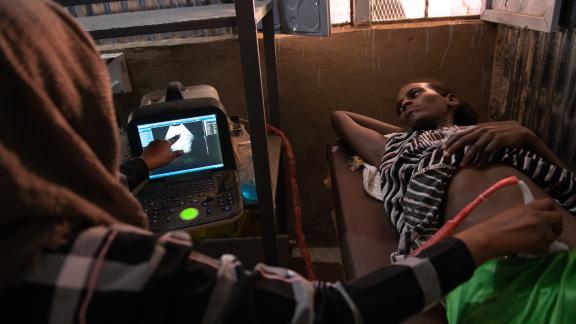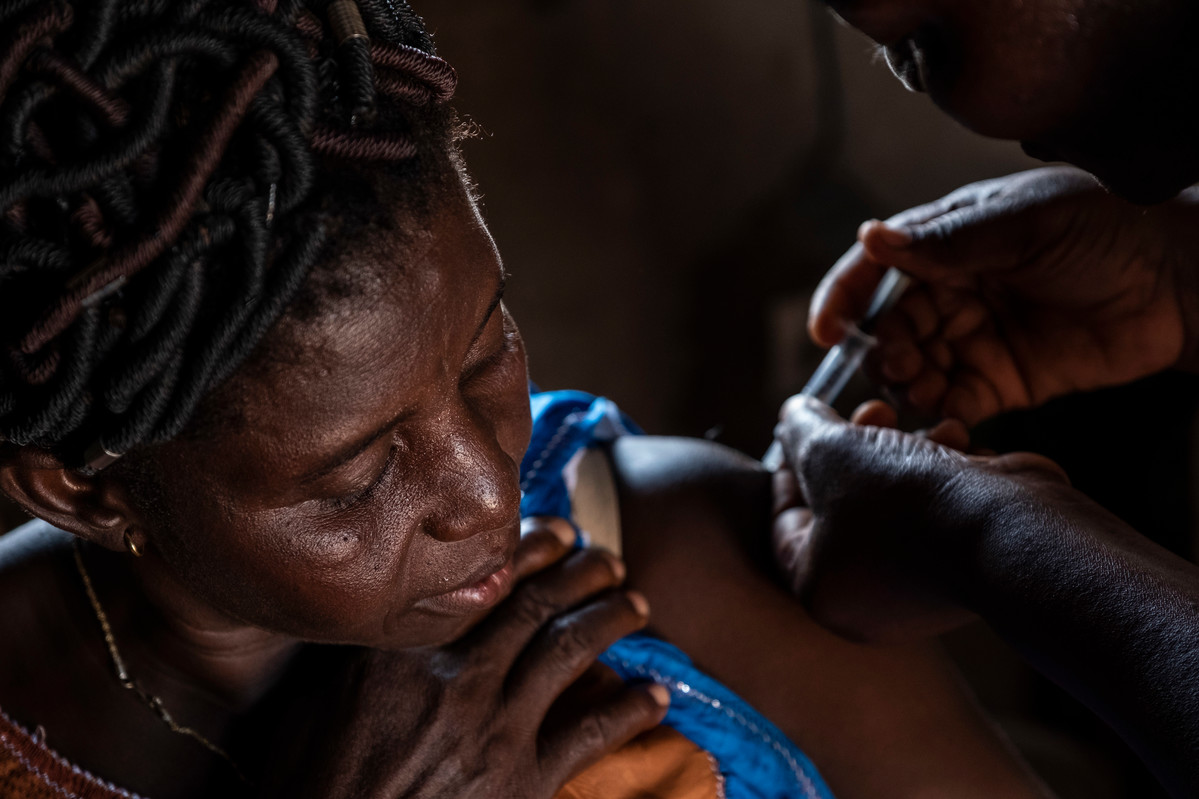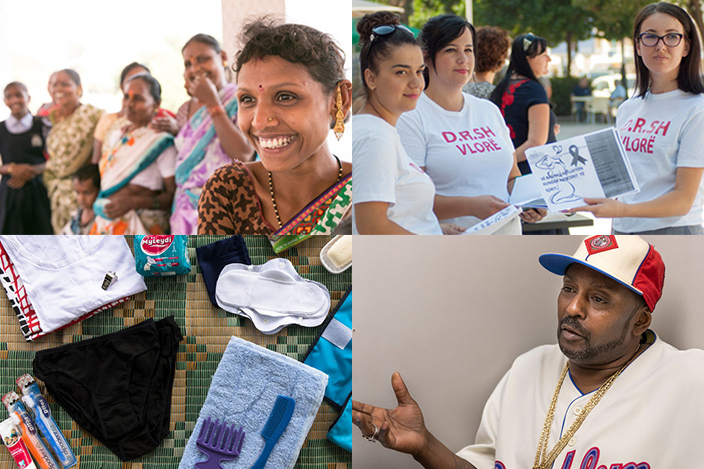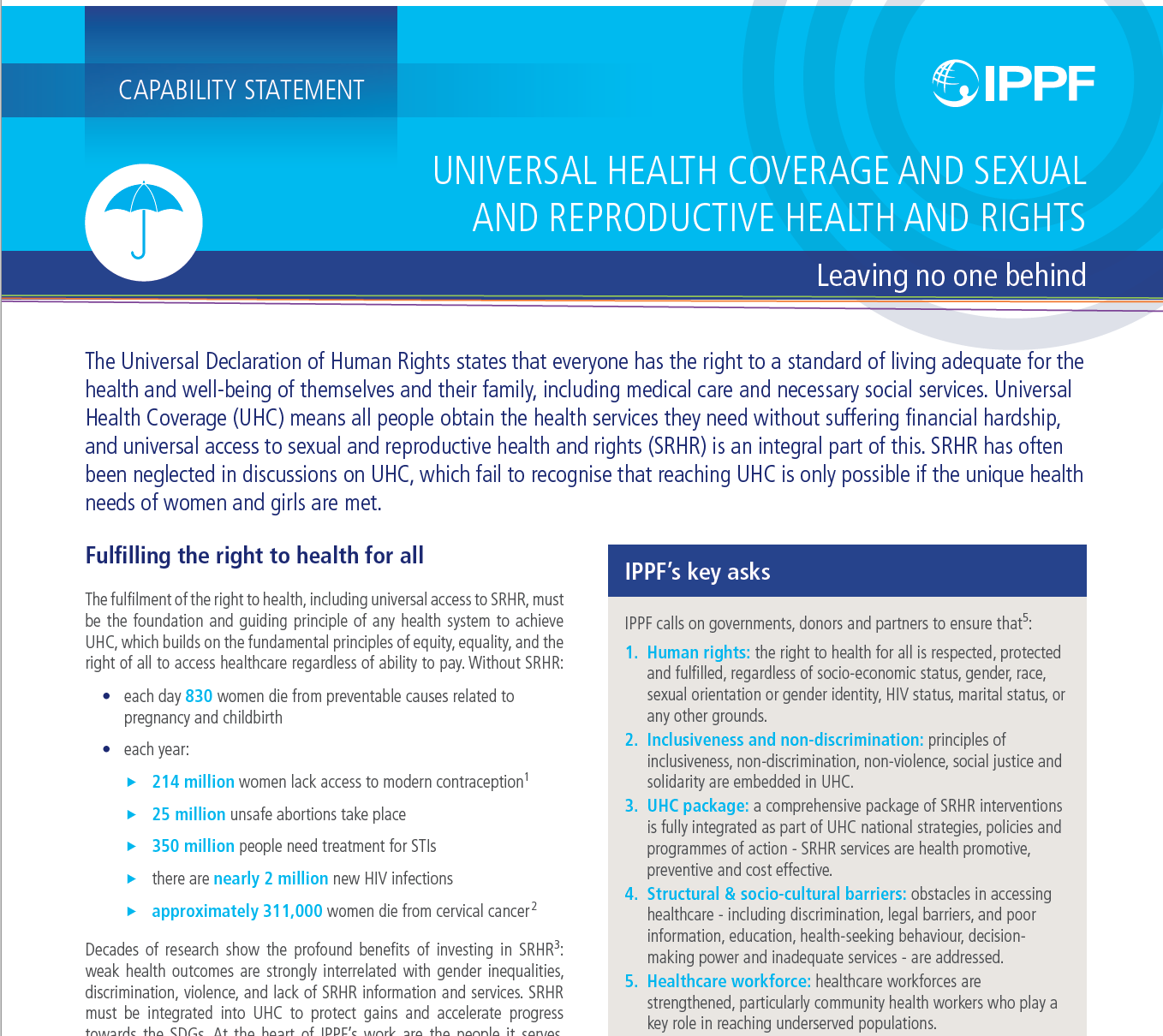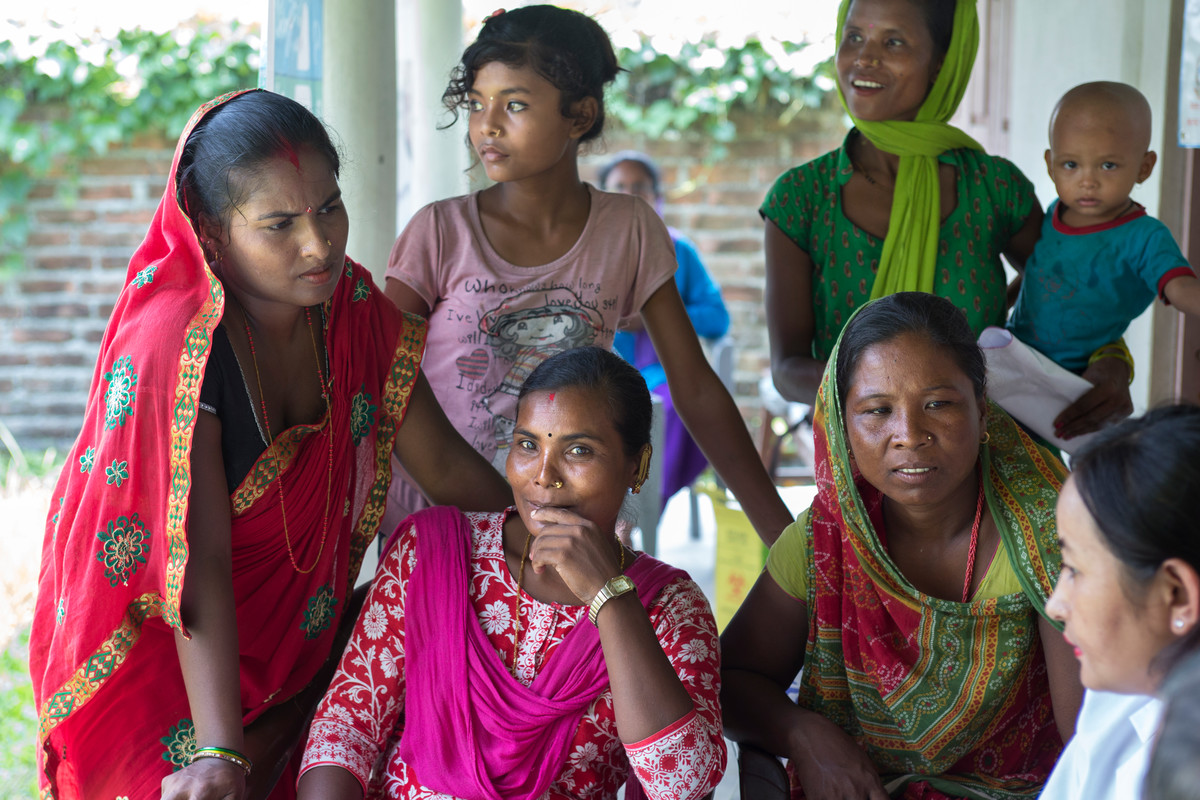A person’s health should not depend on their wealth.
Countries around the world have made important steps towards Universal Health Coverage (UHC) by ensuring people can obtain health services when they need them, without suffering financial hardship.
Here we highlight some examples from Africa.
At the beginning of this year, we saw a major win for women in Ghana, as the country’s health insurance program expanded to include free long-term contraception.
“This means long-time peace of mind for women, girls and their families with potential positive impact on their health and economic life,” said Abena Adubea Amoah, the Executive Director of the Planned Parenthood Association of Ghana, an IPPF Member Association.
when
Subject
Universal Health Coverage
In 2018, Kenya piloted its UHC program in some parts of the country, and by 2020, had enlisted more than 200 community health units, with 7,700 community health volunteers and over 700 health workers. Between 2018 and 2019, the project had supported 3.2 million Kenyans to access critical health care services.
And in the last two decades, Ethiopia has moved from outlawing the promotion of family planning to increasingly liberalized access to safe abortion within the UHC framework.
Yet, the cost of healthcare, including sexual and reproductive healthcare, is still unaffordable and inaccessible for many people. Even in these contexts, Kenya’s Reproductive Health National Policy still does not address sexual health and only mentions sex within the context of reproduction. In Ghana, there are still many gaps in the country’s health insurance program, including access to safe abortion.
While many other countries in Africa have included UHC as a goal in their national health strategies, progress in translating these commitments into expanded domestic resources for health, effective development assistance, equitable and quality health and increased financial protection, has been slow.
An investment, not a cost
Despite inclusion in the 2019 UN Political Declaration on UHC, many countries on the continent still do not offer a comprehensive package of essential sexual and reproductive health services as part of their UHC.
As a leading advocate and global sexual and reproductive health service provider, IPPF’s role is key in promoting progress towards universal health coverage that is inclusive and human rights-based. We also know that decades of research show the profound benefits of investing in sexual and reproductive health and rights (SRHR) for all.

Investing in sexual and reproductive health as part of a national health insurance programme not only positively impacts gender equality and equity but can also significantly contribute to future economic development and sustainability.

Investing in sexual and reproductive health as part of a national health insurance programme not only positively impacts gender equality and equity but can also significantly contribute to future economic development and sustainability. And investing in training for healthcare providers as part of UHC contributes to reducing stigma and expanding access to all areas of sexual and reproductive health, contributing to improved health outcomes.
In 2021, IPPF published a position paper that articulates our priorities in relation to UHC and sexual and reproductive health and rights. We have also written a capability statement on UHC, outlining our key asks when it comes to integrating SRHR into UHC.
On this year’s Universal Health Coverage Day, IPPF once again urges all Governments, donors and partners to call for greater investment in SRHR, and ensure that a comprehensive package of essential SRHR interventions is a fundamental part of national UHC policies, strategies and programs.
Health - including sexual and reproductive health - is an investment, not a cost.
Now, more than ever, we need strong health systems that are inclusive of sexual and reproductive health for all.







